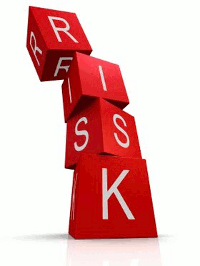These Beliefs are the Seven Principles of Consistency from Mark Douglas’s “Trading in the Zone” I highly recommend picking this book up to add to your collection, because it has benefited me tremendously in understand how beliefs and values play a vital role in one’s trading and ultimate success.
I remember the first time I picked this book up I didn’t “get” it and put it away. About a year later I read it again and it just clicked. I now reference it on a weekly schedule just so the principles in the book stay fresh in my mind and to reinforce what I had learned.
I am a Consistent Winner Because:
1. I objectively identify my edges.
2. I predefine the risk in every trade.
3. I completely accept the risk or I am willing to let go of the trade.
4. I act on my edges without reservation or hesitation.
5. I pay myself as the market makes money available to me.
6. I continually monitor my susceptibility for making errors.
7. I understand the absolute necessity of these principles of consistent success and , therefore, I never violate them.
Five Fundamental Truths:
1. Anything can happen.
2. You don’t need to know what is going to happen next.
3. There is a random distribution between wins and losses for any given set of variables that define an edge.
4. An edge is nothing more than an indication of a higher probability of one thing happening over another.
5. Every moment in the market is unique.
Addional Mark Douglas Material in PDF form. (more…)


 Everything is difficult before it becomes easy.
Everything is difficult before it becomes easy. Don’t drop your Jaw …… Literally it was
Don’t drop your Jaw …… Literally it was Life is full of risks, and risks are all around you as a trader. In a perfect world there would be no risks and any decision you make will turn out to be the best one. You can hope for win after win, and not even have to worry about the prospect of losing. Yet this is an unrealistic and impossible scenario because as we all know trading is all about risk. However, there is no need to be afraid of risk. We need to accept the fact that it is there, and rather than focusing on fear we need to know how to deal with it and manage it.
Life is full of risks, and risks are all around you as a trader. In a perfect world there would be no risks and any decision you make will turn out to be the best one. You can hope for win after win, and not even have to worry about the prospect of losing. Yet this is an unrealistic and impossible scenario because as we all know trading is all about risk. However, there is no need to be afraid of risk. We need to accept the fact that it is there, and rather than focusing on fear we need to know how to deal with it and manage it.
 Knowledge – A trader must put in the time and effort to study and learn the proper skills in order to be successful. Whether that is through technical or fundamental analysis, one must invest in their education. They must completely understand their market, and its ideal as a beginner to focus on one market and be a specialist. A part of the knowledge and education is devising a game plan or strategy for trading. Writing down your rules and sticking to your trading plan is a key to success.
Knowledge – A trader must put in the time and effort to study and learn the proper skills in order to be successful. Whether that is through technical or fundamental analysis, one must invest in their education. They must completely understand their market, and its ideal as a beginner to focus on one market and be a specialist. A part of the knowledge and education is devising a game plan or strategy for trading. Writing down your rules and sticking to your trading plan is a key to success.  A trader who is comfortable with uncertainty has the capacity to stay relaxed in unclear situations and make high probability decisions with a strong degree of conviction.
A trader who is comfortable with uncertainty has the capacity to stay relaxed in unclear situations and make high probability decisions with a strong degree of conviction.